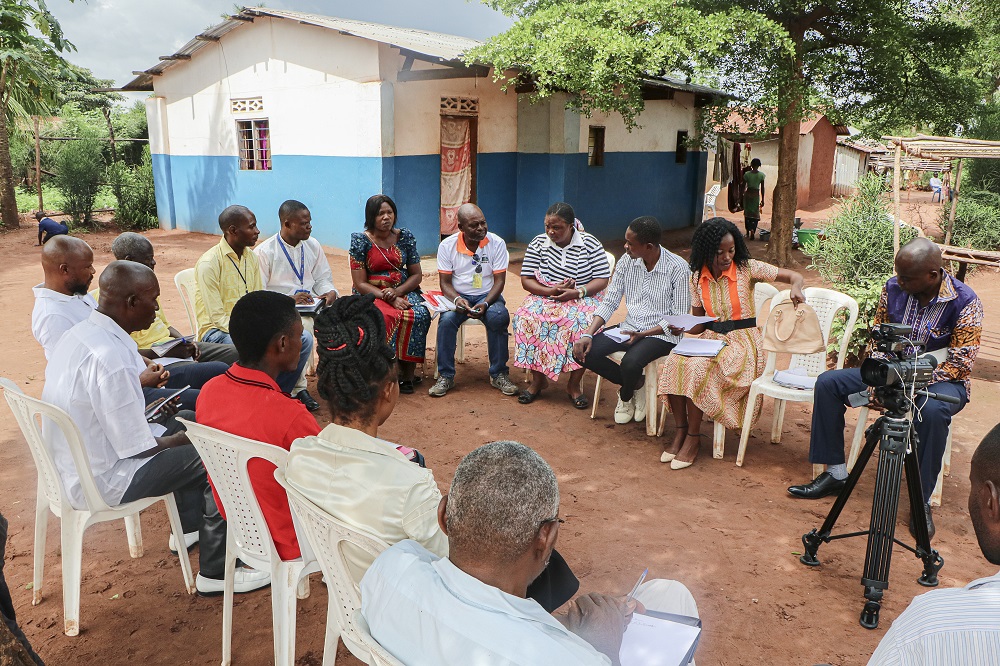Calling for inclusive action to prevent violence in DR Congo’s Kasaï region

A conflict between a local militia and national government forces in 2016 transformed the relatively calm Kasaï region in the Democratic Republic of Congo into the scene of violent intercommunal conflict. At least 5,000 people died and 1.4 million others were displaced by two years of violence. Since the end of confrontations in 2018, ethnic tensions have continued to simmer, raising serious concerns that violence may resurface. In a new report, Interpeace calls for inclusive and coordinated actions to address simmering tensions and foster peace, reconciliation and development.
The report, titled “Challenges and Priorities for Peace in Kasaï and Kasaï-Central”, presents the results of a participatory-action research carried out as part of an initiative launched in 2019 by Interpeace together with its partners Action pour la Paix et la Concorde (APC), Commission Diocésaine Justice et Paix (CDJP) and Travail et Droit de l’Homme (TDH) to help restore trust and collaboration between communities, national authorities, customary power and security forces. The report draws on broad consultations conducted between October and December 2019 among 426 citizens to identify the underlying causes of violence, available resilience capacities and the priorities for peace, security and development in the region. It is also based on the results of a quantitative survey of 848 individuals on the state of conflict, security, levels of trauma, trust, and socio-economic conditions in intervention sites.
The report identifies five major contentious issues at the origin of conflicts in Kasaï and Kasaï-Central. These include the instrumentalization of customary power for political means, ethnic competition to access political and economic power, and a lack of trust in national authorities and state institutions. The report also presents some of the obstacles to sustaining peace. Among them is the humanitarian crisis caused by the violence, which created tensions between displaced persons and host communities competing for food, access to water, care and education. Trauma, economic hardship and mistrust at different levels of the societies are also some of the impediments to peaceful cohesion.
To ensure that peace is sustained, the report proposes key recommendations to restore trust and reconciliation within communities and with national authorities. Peace education initiatives need to encourage and support individuals to embrace tolerance and dialogue to resolve conflicts. Sustained dialogues between customary chiefs, communities, authorities and security forces need to be facilitated to improve governance, prevent violence and promote reconciliation. A multisectoral programme for trauma healing needs to be established, and efforts are needed to support the demobilization and reintegration of former militiamen into communities in order to reduce insecurity and promote reconciliation. Finally, the report recommends making use of economic peacebuilding opportunities to improve living conditions of the population while enhancing social cohesion.
From March to August 2020, the preliminary results and recommendations of the report were presented to local, provincial and national stakeholders for validation. For the first time since the conflict, community members, customary leaders, authorities and security forces were brought together to discuss and reach a common understanding on the challenges to and priorities for peace. This made it a powerful tool not just for research but also for building consensus, reducing tensions and triggering collective action with a strong local buy-in.
Building on this positive momentum and recent security improvement in the region, the time is ripe for national and international decision-makers to understand and address the priorities identified by the population to prevent the resumption of violent conflict and advance reconciliation as well as inclusive socio-economic development.
